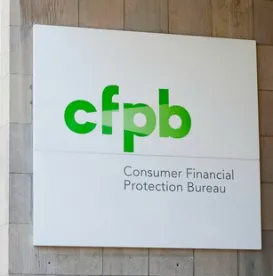Last week, the CFPB Ombudsman’s Office released its seventh annual report covering the Office’s activities during fiscal year 2018. The Ombudsman’s Office is intended to serve as an independent, impartial, and confidential resource that assists consumers, financial entities, consumer or trade groups, and others in informally resolving process issues with the CFPB. The Office works outside of the CFPB’s business lines, reporting to the Deputy Director with access to the Director. One of its stated goals is to serve as an early warning system and catalyst for change.
In the annual report, the Office provides examples of its work in the 2018 fiscal year and discusses the types of internal and external engagement in which it has participated during that period.
Some noteworthy items include:
-
An overview of the Office’s efforts in assisting stakeholders in engaging with the Bureau’s Request for Information process, sharing resources to assist consumers in recognizing financial frauds and scams, and facilitating technical assistance to companies responding to consumer complaints.
-
Discussion of the Office’s continued practice of regular meetings with Bureau leadership and staff and the Office’s external outreach activities, including two Ombudsman Forums hosted by the Office and an overview of the new criteria the Office will use in determining the topics and format for future Forums.
-
While the CFPB generally prefers to avoid endorsements of groups or entities, the Office received an inquiry about a Bureau blog post that did recommend one group to consumers for a certain kind of assistance. This inquiry led the Office to study the Bureau’s internal guidance about naming entities in blogs, social media, and print materials for a positive purpose. The study resulted in the Office recommending that the Bureau supplement its guidance as it relates to the commercial impact of the Bureau recommending a group or entity, incorporate review of agency risk associated with such action, and make internal guidance about the endorsement of entities more widely available to Bureau staff.
-
A review of the Bureau’s process for responding to consumer complaints about companies initiated by third parties who are unauthorized to receive the company’s substantive response to the complaint. In these types of situations, a third-party, who is not a customer or authorized person on an account for the company, submits a complaint to the Bureau about the company’s handling of an account or some other action taken by the company. When the company researches the complaint, it learns that the person who brought the complaint is not authorized to receive information responding to the substance of the complaint. When the Bureau is notified that the complaint was brought by an unauthorized person, the Bureau closes the consumer complaint and it is not reopened even if the person submits authorization information. The Office recommended ways for the Bureau’s telephone contact center to be better prepared to address these situations. More specifically, the Office recommended that the telephone contact center be given information that would allow it to answer questions about the unauthorized third party issue, provide additional information to the third party on what it means to be unauthorized, inform consumers that even if new authorization information is submitted the Bureau will not reopen a complaint that was closed because it was initiated by an unauthorized third party, and share that consumers may submit authorizing information required by the company that is the subject of the complaint in a new consumer complaint to be sent to the company.
-
A recommendation that the Bureau provide a direct avenue for non-consumers, meaning anyone who contacts the Bureau about something other than an individual consumer finance question or complaint – including researchers and academics seeking information – to access the Bureau via telephone, or offer a way for non-consumers to know that non-consumer information is available when contacting the Bureau’s main telephone number.
Report of the data and analysis surrounding the individual inquiries received by the Office in FY2018 compared to inquiries received in FY2015-2017. As in the last few years, mortgages were the financial product most commonly underpinning consumer complaint-related inquiries to the Ombudsman, followed by other credit products (26 percent), deposit products (13 percent), credit reporting (13 percent), debt collection (6 percent), and methods of payment (4 percent).



 />i
/>i
